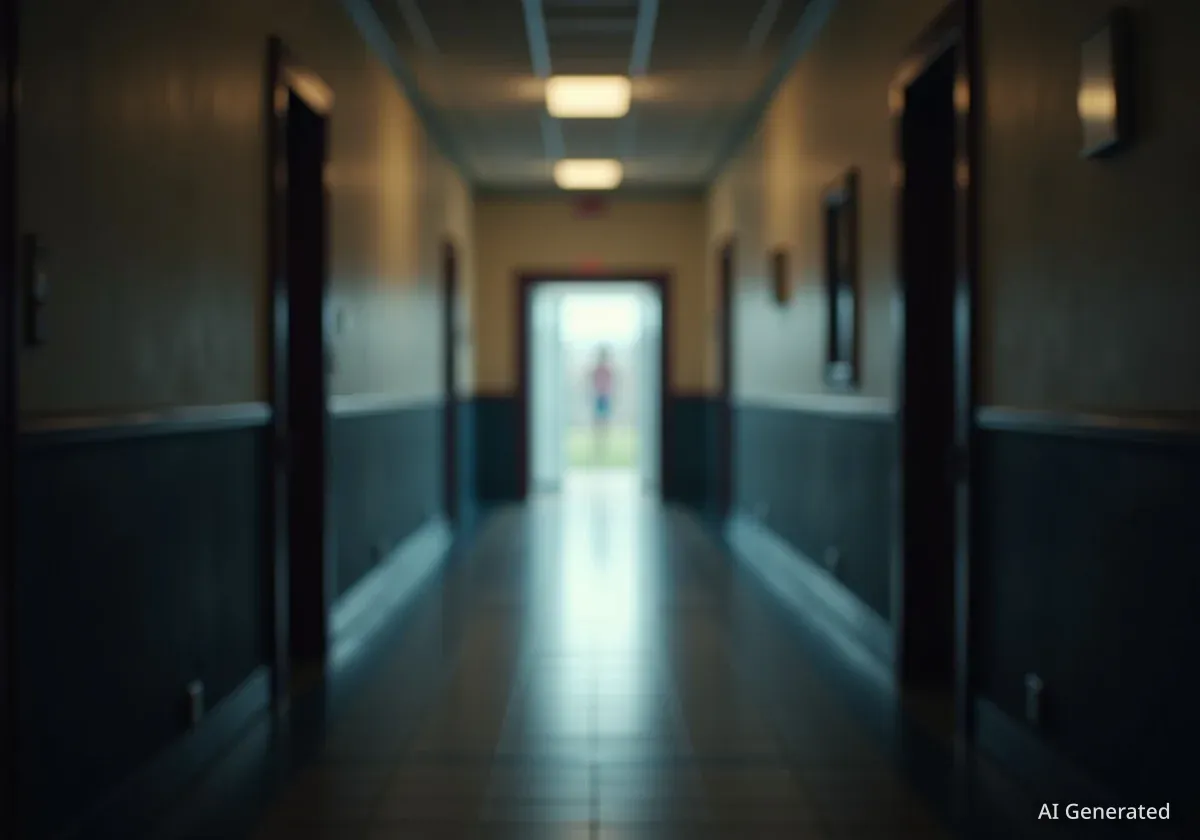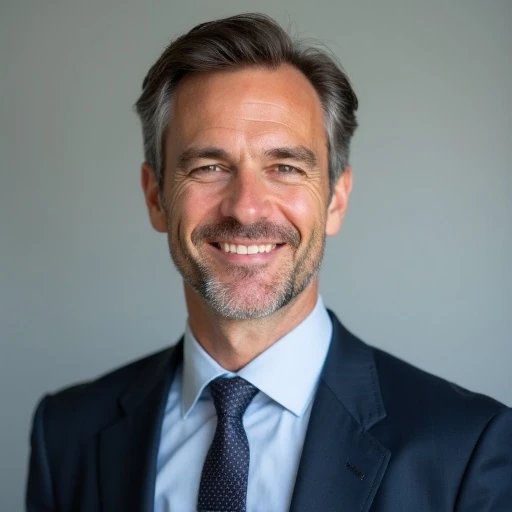Former UNC-Chapel Hill Provost Chris Clemens recently spoke about significant challenges facing higher education, including diversity, equity, and inclusion (DEI) policies, pro-Palestinian protests, and the controversial School of Civic Life and Leadership. His remarks came during a public forum with the student group TransparUNCy, just weeks after he filed a lawsuit against the university and its Board of Trustees.
Key Takeaways
- Chris Clemens sued UNC and its trustees, alleging violations of open-meetings and public-records laws.
- He views DEI bans as an effort to rebalance political perspectives in academia, while criticizing some federal rhetoric as "bullying."
- Clemens discussed the creation of the School of Civic Life and Leadership amid faculty opposition.
- He addressed the university's response to pro-Palestinian protests, stating enforcement was based on rule violations.
Lawsuit Against UNC Trustees Highlights Governance Concerns
Chris Clemens, who served as provost from late 2021 until May 2025, has become a central figure in a legal dispute with UNC-Chapel Hill. His lawsuit accuses the university and its Board of Trustees of violating North Carolina's open-meetings and public-records laws. Specifically, the lawsuit alleges that trustees held unauthorized closed sessions and conducted university business via text messages and auto-deleting apps like Signal, bypassing transparency requirements.
On Wednesday, Clemens filed an additional motion in his lawsuit. This motion seeks to prevent what he describes as the ongoing destruction of evidence related to public business conducted secretly on the Signal app. This action underscores his commitment to transparency in university governance.
Fact: Transparency Laws
North Carolina's open-meetings and public-records laws require public bodies, including university boards, to conduct business openly. This includes providing public notice of meetings and making records accessible.
Sources familiar with the situation informed The News & Observer that Clemens himself has used Signal. Screenshots reportedly show him discussing university matters on the app this year with the auto-delete function active. However, it remains unclear who enabled this feature.
"The Signal app by itself is not problematic any more than WhatsApp. It’s the auto-delete feature... and I have never turned it on," Clemens stated when questioned about his own use of the app. He added that he does not always "notice what’s turned on" but tends to answer messages regardless.
DEI Policies and Institutional Neutrality Debated
The discussion, moderated by TransparUNCy co-founder Toby Posel, addressed the complexities surrounding diversity, equity, and inclusion (DEI) policies. Posel highlighted reports of conservative groups, such as the Oversight Project, seeking access to course syllabi to ensure compliance with DEI bans. He questioned the university's responsibility to protect free speech while upholding institutional neutrality amidst what he termed "asymmetric political and legal attacks."
Last year, the UNC System Board of Governors repealed diversity initiatives. As a result, DEI offices at public universities either closed or underwent significant restructuring. Clemens, who identifies as a conservative member of the UNC faculty, views these actions not as an attack on higher education but as an attempt to restore political balance within academia.
Historical Context: The Kalven Report
Clemens cited the University of Chicago's 1967 Kalven Report, which argues for institutional neutrality. The report suggests that the university as an institution should not take political stances, leaving dissent to individual faculty members.
Regarding DEI, Clemens noted that universities receiving federal funding become vulnerable to federal government directives. He recalled UNC receiving a "very threatening" letter from the U.S. Department of Justice’s Office for Civil Rights. This letter primarily focused on hiring and affirmative action practices. Clemens described these directives as beginning to "touch the curriculum," pressuring administrators to regulate faculty speech and teaching. He characterized this as "bullying" and stated that his role as provost involved pushing back against such pressures to protect academic freedom.
The School of Civic Life and Leadership Controversy
Clemens also discussed his involvement in developing the Program for Public Discourse and the School of Civic Life and Leadership. These initiatives aimed to foster open dialogue and debate on campus. However, both have faced criticism for their perceived conservative leanings and influences.
The School of Civic Life and Leadership is currently under investigation by outside counsel, following faculty and administrative changes. Posel argued that the school's creation bypassed traditional faculty governance processes. The Board of Trustees initially proposed the school through a resolution, with the GOP-led General Assembly later formalizing it. Posel questioned whether this sidestepping of faculty input contributed to the current "crisis" surrounding the school.
Clemens explained that a group of UNC faculty, including conservatives, sought to create the Program for Public Discourse to encourage cross-political debate. He stressed that they "explicitly said they did not want a conservative program." He described the trustees' resolution as largely symbolic, aiming to "hasten the construction of the school."
- Faculty Opposition: Clemens noted that faculty opposition repeatedly stalled the idea of the school.
- Trustee Intervention: He stated that because the initiative faced continuous delays due to dissenting faculty, it eventually required action from trustees and the provost to move forward.
Clemens acknowledged Posel's concern, agreeing that "the wrong way to make a school (is) by legislative fiat, with people who don’t understand academia calling shots."
Response to Pro-Palestinian Protests
The conversation also covered the university's response to pro-Palestinian protests in 2024. Posel described the response as a "highly militarized police response," which he felt was wrongly justified by accusations of antisemitism. He argued that the Trump administration uses "moral panic around antisemitism" on campuses to cut funding and suppress dissent.
"As a Jew, I find the weaponization of antisemitism by the federal government, by your administration, to be reprehensible," Posel stated. "There’s nothing about standing in solidarity with victims of a genocide that is antisemitic."
A United Nations commission of inquiry has indicated that Israel is committing genocide against Palestinians in Gaza. Israel denies these claims, stating its actions are for defense and to free hostages taken by Hamas on October 7, 2023.
Posel also criticized what he called political theater, specifically mentioning UNC Chancellor Lee Roberts' appearance after protesters removed the U.S. flag and raised a Palestinian flag. Roberts, accompanied by police, oversaw the re-raising of the U.S. flag, an event Posel viewed as staged to appeal to Republicans.
Clemens maintained that enforcement actions were based on rule violations, not political motivations. He noted that pitching tents on campus grounds violated university policy. He clarified that he was not involved in police decisions during the protests. Clemens recalled personal experiences during the protests, including being spat on and having his car attacked.
Key Data Point: Protest Enforcement
University officials typically cite violations of campus policies, such as rules against unauthorized structures or disruptions, as grounds for intervention during protests.
While rejecting the idea that the university's response was politically driven, Clemens expressed concern about the broader rhetoric. He stated that "some of the rhetoric we are hearing out of Washington and other places feels just like that same kind of bullying" he encountered previously, which marginalizes differing viewpoints.
"This is why we wanted a discourse program. This is why we wanted a program for public discourse," Clemens said. "I think lowering the temperature is the responsibility of responsible administrators," and of those in Washington. "I do not see any desire to lower the temperature, and I think it's not healthy for the country," he added. "I think we would all be well advised to lower the temperature, to take the rhetoric down a notch, to try to be authentic with one another."
Posel recounted being pepper-sprayed after not dispersing when police ordered him to. He characterized the police response as excessively violent, brutal, and politically motivated. Clemens acknowledged his role in the decision-making process.
"I was not the final decision maker, but I did acquiesce to that decision and I thought it was the right thing. So inasmuch as my acquiescence caused you harm or pain, I am sorry," Clemens told Posel.
Posel expressed appreciation for the apology. He agreed that "in the interest of taking down the temperature, conversations like this are important and valuable."





